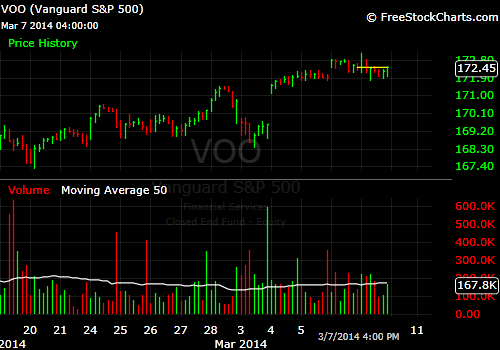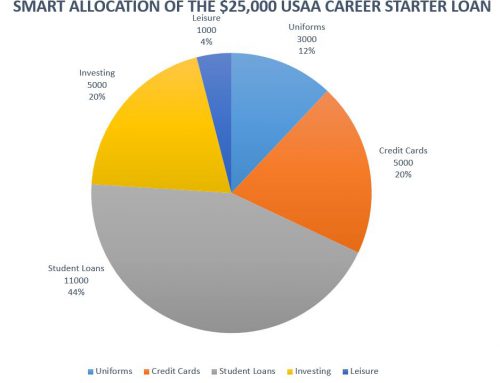I have already expressed my opinion about mutual funds, but I have yet to provide a viable alternative. The reality is that most of us aren’t going to have enough time to actively manage our own stock portfolio. You should still try to find good long term stocks to own, but you aren’t going to be able to keep a very close watch if you are deployed and have 10+ stocks to worry about. Index funds are an incredible alternative to mutual funds that can add diversity to any portfolio.
The first index fund was establish in 1975 by the creator of Vanguard, John Bogle. Index funds utilize computers to automatically buy and sell shares in a manner that complements the marketplace (e.g., the S&P 500). If a stock represents 3% of the S&P 500, it is going to signify 3% of the index-fund. Such funds need almost no care whatsoever, and operate in a manner that is both tax-efficient and inexpensive. Put simply, index funds are merely sets of shares that computers handle in order to mirror the marketplace whether it by the S&P 500, or something else such as real estate.
Every mutual fund manager claims he is able to overcome the marketplace. They constantly engage in new trades, and utilize information along with elaborate analysis to bolster their advertised results. The real outcome is high trading costs and taxation, which, when along with the expense ratio, makes it practically impossible for the typical trader to overcome. Bogle acknowledged the shortcomings of mutual funds, thus offering index funds as a favorable alternative.
Currently, index funds are a simple and effective strategy to create a substantial investment return. Nevertheless, the index funds will follow the marketplace. If the stock exchange falls, your assets will likely fall. There may be times of hardship but, as history has revealed, ,markets will almost certainly rise back over the long term.
There will always be positives and negatives associated with any investment. Here are some key points to note when considering investing in an index fund.
Yes! Invest in an index fund
- Tax-efficient
- Inexpensive
- Simple to manage
No! Stay clear of index funds
- You will generally have to invest in multiple index funds to properly allocate assets in a diversified manner
- Managing several index funds will require some time re-balancing assets
Index funds definitely have some advantages over buying mutual funds. If you wish to create and manage the precise make-up of your collection making use of their reduced costs, they’re an outstanding option. Still, it may not be the best choice for everyone. If you aren’t willing to take at least a little bit of time (once a year at the least) learning proper asset allocation and researching the various index funds then you may need a different investment vehicle to hop in.






For young DIY-types with little time and expertise in money management, a combination of risk-managed index funds is likely a pretty good choice. Symbol CFA for equities and BND for fixed income in a 60/40 mix is probably in the right ballpark. This is a pretty blunt instrument, but over the long-term (5+ years) one could do a whole lot worse with what appear to be more sophisticated strategies. I’ve been an investment professional for more than 30 years and I have a debt of gratitude to our military, so I put this out there with the intention of steering people clear of expensive and potentially ineffective alternatives. The best advice is to either learn this stuff yourself or find a trustworthy advisor who can take care of this for you.